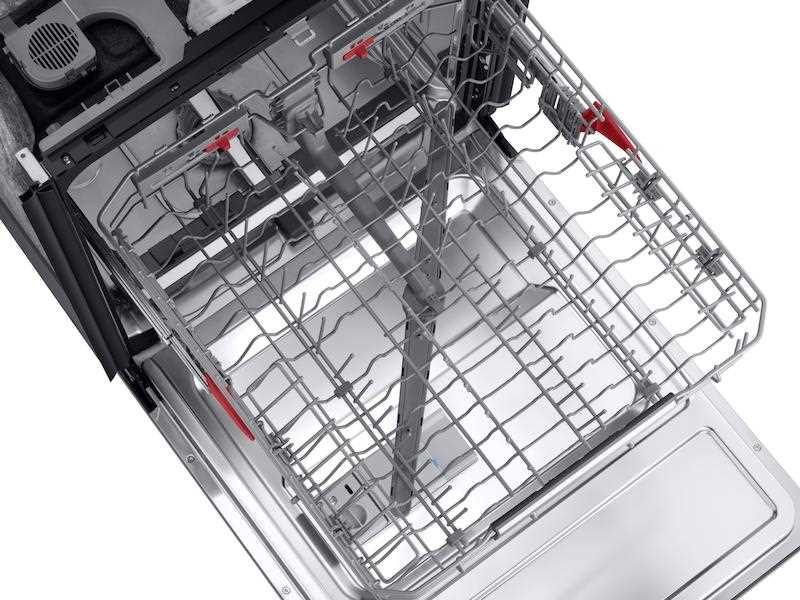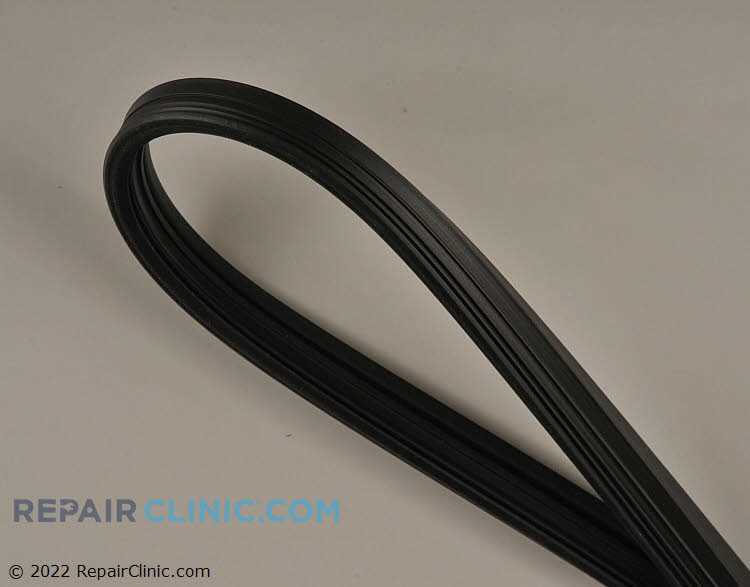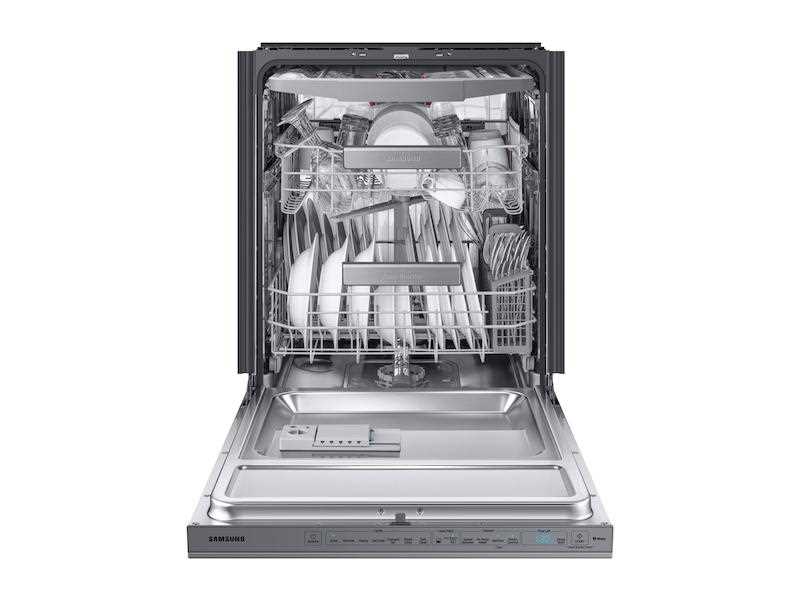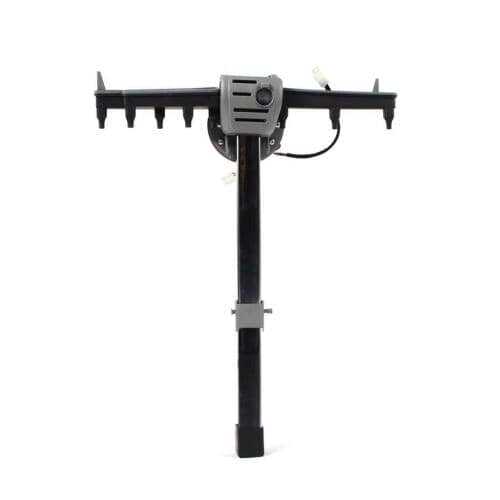
In the world of modern kitchen appliances, grasping the intricate layout of essential components is crucial for efficient maintenance and repair. This understanding not only enhances functionality but also extends the lifespan of the device. A comprehensive overview of these elements provides valuable insights for both users and technicians alike.
By exploring the arrangement and interaction of various sections within a specific model, one can gain a deeper appreciation for its engineering. Each part plays a significant role, contributing to the ultimate performance and reliability of the unit. Delving into this structure reveals the thought process behind design choices and aids in troubleshooting potential issues.
Whether you’re a DIY enthusiast or a professional repair technician, familiarizing yourself with these layouts can significantly improve your efficiency. An in-depth examination of the various components enables quicker diagnostics and more effective solutions, ensuring that the appliance continues to operate smoothly for years to come.
Understanding the Samsung DW80R9950US Model
This section explores the intricacies of a specific model designed for modern kitchens, focusing on its functionality, design, and the technology that enhances user experience. By examining its components and how they interact, one can appreciate the engineering that makes this appliance both efficient and reliable.
Features and Technology
The appliance boasts a range of advanced features aimed at optimizing cleaning performance. Innovations such as smart sensors and multiple wash cycles allow users to customize their experience, ensuring that every load is handled with precision. The incorporation of energy-efficient technology further contributes to sustainable usage.
Maintenance and Care

Proper maintenance is crucial for prolonging the lifespan of any device. Regular cleaning and timely checks of essential components can prevent potential issues. Understanding how to care for this model enhances its functionality and efficiency, providing users with the ultimate experience in home care.
Key Features of the Dishwasher
This advanced kitchen appliance offers a range of innovative functionalities designed to enhance the cleaning experience. From efficiency to user-friendly settings, it caters to various needs, making dishwashing less of a chore and more of a convenience.
Efficient Cleaning Technology
Featuring state-of-the-art cleaning mechanisms, this appliance ensures that dishes come out sparkling clean every time. Its specialized spray arms and targeted jets work in tandem to eliminate tough stains and residues, while energy-efficient options reduce water and power consumption.
User-Centric Design
The intuitive interface allows for easy operation, with customizable wash cycles and adjustable racks that accommodate various dishware sizes. Additionally, noise reduction technology ensures quiet operation, making it a seamless addition to any kitchen environment.
Importance of Parts Diagrams

Understanding the layout of components in appliances is crucial for effective maintenance and repair. Visual representations serve as essential guides, enabling users to locate and identify specific elements quickly, which enhances efficiency and reduces downtime during troubleshooting.
Facilitating Repairs
Having access to a visual reference streamlines the repair process, allowing technicians to tackle issues with confidence. It ensures that all necessary components are accounted for, minimizing the risk of overlooking critical parts during servicing.
Enhancing User Knowledge
Familiarity with the internal structure of devices empowers users to engage in basic troubleshooting. This knowledge can lead to informed decisions regarding repairs and replacements, ultimately prolonging the lifespan of the appliance.
Identifying Major Components
Understanding the essential elements of a household appliance is crucial for effective maintenance and troubleshooting. Each component plays a specific role in ensuring optimal performance, and recognizing these parts can significantly enhance user experience and longevity of the device.
Key Functional Parts
Among the primary components, the motor is vital for operation, powering the various cycles that the appliance offers. Additionally, the control panel serves as the interface, allowing users to select settings and monitor progress. The heating element is also integral, providing the necessary heat for effective cleaning.
Supportive Elements
Other important components include the drain pump, which removes excess water, and the filter system, essential for maintaining water quality. Furthermore, the spray arms ensure even distribution of water during cycles, enhancing cleaning efficiency. Familiarizing oneself with these elements aids in better understanding of the appliance’s functionality.
Common Issues with Samsung Dishwashers
Dishwashers are essential appliances in modern kitchens, yet they can occasionally present challenges. Users often encounter a variety of operational problems, which can disrupt the cleaning process and lead to frustration. Understanding these common issues can help in troubleshooting and maintaining optimal performance.
Frequent Problems
Several recurring issues can affect the functionality of dishwashing machines. Users may notice inadequate cleaning, water leaks, unusual noises, or failure to start. Each of these problems can stem from various underlying causes, which may include clogged filters, malfunctioning spray arms, or issues with the water supply.
Possible Solutions
| Issue | Possible Cause | Recommended Action |
|---|---|---|
| Poor Cleaning Performance | Clogged spray arms | Clean or replace spray arms |
| Water Leaks | Damaged door seal | Inspect and replace door seal |
| Unusual Noises | Foreign objects in the motor | Remove objects and check for blockages |
| Will Not Start | Faulty door latch | Test and replace door latch if necessary |
By identifying these common problems and understanding their potential solutions, users can take proactive steps to ensure their dishwashing machine operates smoothly and efficiently.
How to Replace Dishwasher Parts

Understanding how to swap out components in your cleaning appliance can enhance its performance and longevity. Whether you’re addressing minor issues or major malfunctions, knowing the steps involved can save time and reduce costs.
Essential Tools Needed
Before starting, gather the necessary tools to ensure a smooth replacement process. Here’s a list of items you may require:
| Tool | Purpose |
|---|---|
| Screwdriver | To remove screws securing the panels. |
| Pliers | For gripping and pulling components. |
| Socket Set | To loosen and tighten bolts. |
| Towel | To wipe down any spills and keep the area clean. |
Step-by-Step Replacement Process
Begin by disconnecting the power and water supply to your device. Carefully remove the necessary outer panels to access the interior. Identify the faulty part and detach it, then install the new component by reversing the removal steps. Ensure all connections are secure before restoring power and running a test cycle.
Finding Replacement Parts Online
When it comes to repairing household appliances, sourcing the necessary components can be a daunting task. However, the internet provides a plethora of options to help you locate the exact items you need. This guide aims to simplify your search and ensure that you find quality replacements efficiently.
Steps to Locate Components
- Identify the Model Number: Make sure to find the exact model number of your appliance, as this will be crucial in your search.
- Search Reputable Retailers: Look for well-known online retailers or specialized websites that focus on appliance repair parts.
- Utilize Manufacturer Websites: Many brands have official sites that offer genuine components directly to consumers.
- Read Reviews: Check customer reviews and ratings for the items you consider purchasing to ensure reliability and compatibility.
Helpful Tips
- Bookmark Useful Sites: Save links to trusted online stores for future reference.
- Compare Prices: Don’t settle for the first option; compare prices across multiple platforms to get the best deal.
- Check Return Policies: Ensure the retailer has a fair return policy in case the part does not fit or function as expected.
- Join Online Forums: Engage with community forums where others share their experiences and recommendations on sourcing components.
Maintenance Tips for Longevity

Proper upkeep is essential for extending the lifespan of your kitchen appliance. By implementing a few simple strategies, you can ensure that it continues to function optimally for years to come.
Regular Cleaning: Make it a habit to clean the interior and exterior regularly. This prevents the buildup of grime and ensures all components operate smoothly.
Check Seals: Inspect the door seals frequently. Proper seals help maintain efficiency and prevent leaks, which can cause damage over time.
Use Recommended Products: Always utilize cleaning agents and maintenance products that are recommended by the manufacturer to avoid damaging sensitive components.
Monitor Performance: Pay attention to any unusual noises or performance issues. Addressing problems early can prevent more significant issues down the line.
Professional Servicing: Schedule periodic professional inspections to identify potential issues that may not be apparent during regular use.
Implementing these maintenance tips will help you enjoy the ultimate performance from your appliance for an extended period.
Visual Aids for Assembly Guidance
Effective assembly can significantly benefit from the use of visual resources. These tools not only enhance understanding but also streamline the entire process, making it more intuitive for users. Clear illustrations and detailed images can bridge the gap between written instructions and practical application.
Types of Visual Resources
- Illustrated manuals
- Step-by-step infographics
- 3D models and animations
Benefits of Using Visual Aids
- Improved comprehension of complex tasks
- Reduced assembly time
- Minimized errors during the process